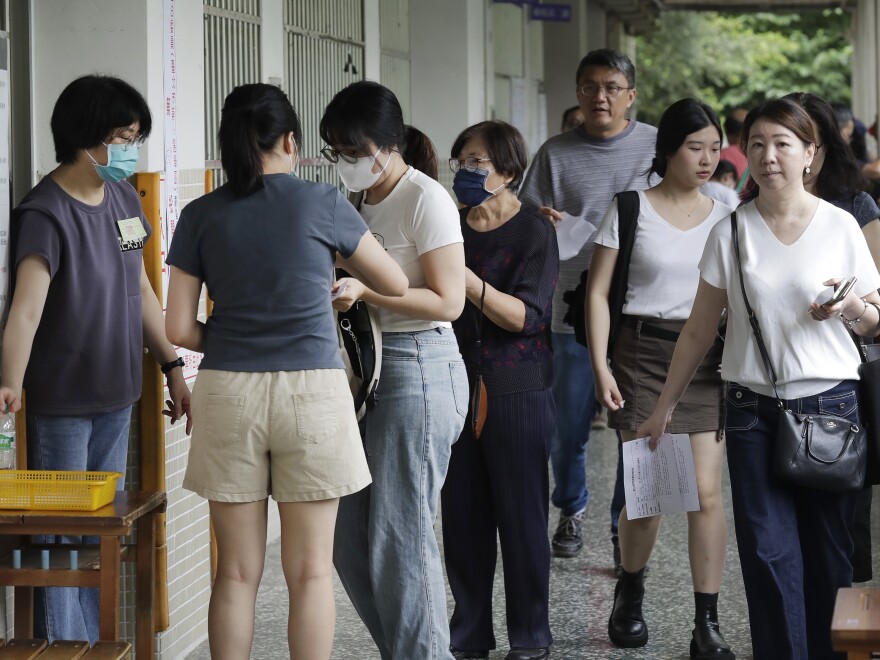Updated @ 5:06 AM EDT on July 26, 2025
Taiwan, or TAIPEI In a recall election held Saturday, Taiwanese voters decided whether to remove around one-fifth of their parliamentarians, who are all members of the opposition Nationalist Party. The outcome of the vote may potentially change the balance of power in the legislature of the self-governing island.
The China-friendly Nationalists, often known as the KMT, and the smaller Taiwan People’s Party have enough seats to form a majority bloc, but the independence-leaning ruling Democratic Progressive Party emerged victorious in last year’s presidential election.
The KMT and its allies have delayed important legislation, particularly the defense budget, and passed contentious measures that are perceived as undermining the executive branch’s authority and favoring China, which claims the island as its own territory. This has infuriated those who support the removal of the 24 legislators.
The recall efforts were prompted by the opposition parties’ actions, which raised doubts among some Taiwanese about the island’s democratic integrity and its capacity to fend off Chinese military threats. The recall elections are unprecedented in scope, and on August 23, seven more KMT MPs will be up for similar ballots.
However, the KMT said that the recalls were weakening and testing Taiwan’s democratic system, accusing the ruling party of using political vengeance after losing the parliamentary majority.
The ruling DPP has 51 seats, while the KMT has 52. The ruling party would need to win the by-elections, which must take place within three months of the results being announced, and remove at least six KMT legislators in order for the DPP to obtain a legislative majority.
More than 25% of the electoral district’s eligible voters must support the recall, and the overall number of supporters must be greater than the number of opponents.
The KMT may be able to regain its seats if it loses them in the recall elections by fielding fresh candidates in the by-elections.
On Saturday evening, preliminary results are anticipated. The poll ended at 4 p.m. local time. The official results will be made public by Taiwan’s Central Election Commission on August 1.
Tensions between those who support the status quo and those who want closer connections with Beijing have increased as a result of the elections. China-friendly politicians are criticized for their contacts with mainland Chinese politicians and are accused of compromising Taiwan. However, given Beijing’s refusal to engage with the DPP, these Taiwanese politicians say their relationships are essential for conversation.
In June, Zhu Fenglian, a spokesman for China’s Taiwan Affairs Office, responded to a question about the recall election by saying that since Taiwan President Lai Ching-te’s administration took office, it has attempted to establish “one-party dominance” and has engaged in dictatorship under the pretense of democracy, according to state broadcaster CCTV. The office is a division of the Communist Party, which is in power in China and upholds strong one-party rule.
According to Zhu, Lai’s administration has not spared any effort in stifling opposition groups and those who advocated for the growth of cross-strait connections.
Chinese officials and state media attempted to openly tamper with the vote, according to a statement released Wednesday by Taiwan’s mainland relations committee.
Copyright 2025 NPR






